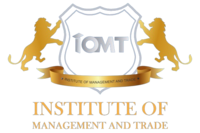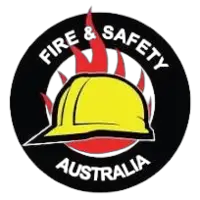
This role has a moderate level of AI exposure. AI can enhance efficiency for some tasks, but this job still relies on human skills and decision-making.
Explore all careersMechanical Fitters assemble and repair machinery using metal parts, assessing materials and ensuring equipment performance.
Get qualified to work as a Mechanical Fitter with a course recognised across Australia. Speak to a training provider to learn more.



















In Australia, a full time Mechanical Fitter generally earns $1,924 per week ($100,048 annual salary) before tax. This is a median figure for full-time employees and should be considered a guide only.
 Courses.com.au Team
Courses.com.au Team
The occupation of Mechanical Fitter has experienced stable numbers over the past 5 years. It is predicted that there will be a moderate growth in the number of Mechanical Fitter roles in the coming 5 years.
Source: Australian Government Labour Market Insights
 Courses.com.au Team
Courses.com.au Team
To obtain a role as a Mechanical Fitter, you will need a relevant tertiary qualification. The Advanced Diploma of Electrical and Instrumentation Engineering for Oil and Gas Facilities and the Advanced Diploma of Electrical and Instrumentation Engineering in Mining both serve as a pathway to this career. Once you become a Mechanical Fitter, you may be required to complete additional short courses to undertake particular tasks in the workplace like driving a forklift.
 Courses.com.au Team
Courses.com.au Team
Browse occupations related to Mechanical Fitter



If you are looking to pursue a career in the mechanical fitting industry, our selection of Mechanical Fitter courses in Richmond offers an excellent starting point. With 11 courses available, you have the opportunity to acquire the essential skills required for this hands-on profession. The beginner courses, such as Certificate III in Engineering - Mechanical Trade (Fitting Trade) MEM30219 and Certificate III in Engineering - Fixed and Mobile Plant Mechanic MEM31419, are designed for those with no prior experience. These courses will equip you with invaluable knowledge that can lead to various career opportunities in Richmond, 2753 Australia.
For those who already possess experience or qualifications, advanced Mechanical Fitter courses in Richmond are also available. Consider enrolling in the Certificate IV in Engineering MEM40119 or the Certificate IV in Aeroskills (Mechanical) (Aircraft Maintenance) MEA40718. These advanced programs will further enhance your expertise and career prospects, making you more competitive in the job market within the engineering and manufacturing sectors prevalent in Richmond.
Training providers such as In Tech Institute of Technology, Fire and Safety Australia (FSA), and Safety Corp are committed to delivering quality training in mechanical fitting. With their recognition as Registered Training Organisations (RTOs) and strong connection to industry bodies, you can be assured of receiving a solid educational foundation. Their offerings encompass vital topics such as working in accordance with permits and entering confined spaces, ensuring a comprehensive educational experience.
Richmond serves as a thriving hub for the mechanical fitter profession, with its proximity to industries such as mining, oil and gas, and manufacturing engineering. If you are eager to kick-start your career in this dynamic field, explore the numerous Mechanical Fitter courses in Richmond today. With the right training and qualifications, you can pave the way to securing a fulfilling position in one of these vital sectors. Start your journey to becoming a skilled mechanical fitter by enrolling in a course that fits your career aspirations!